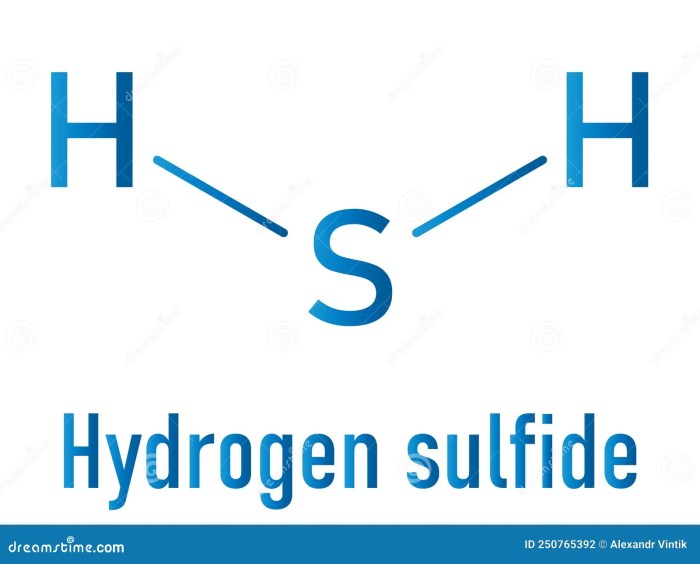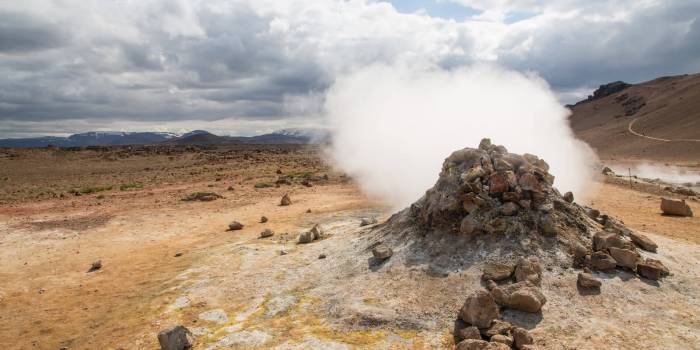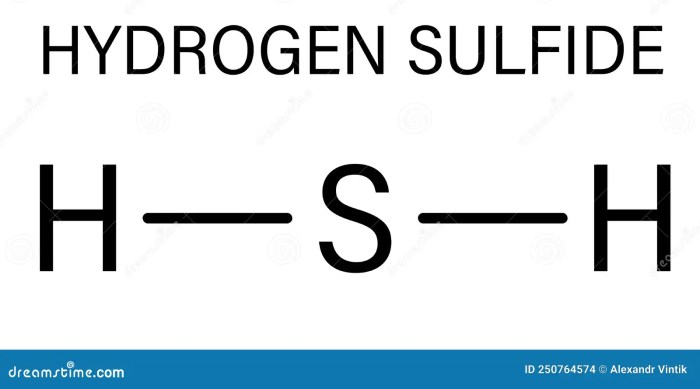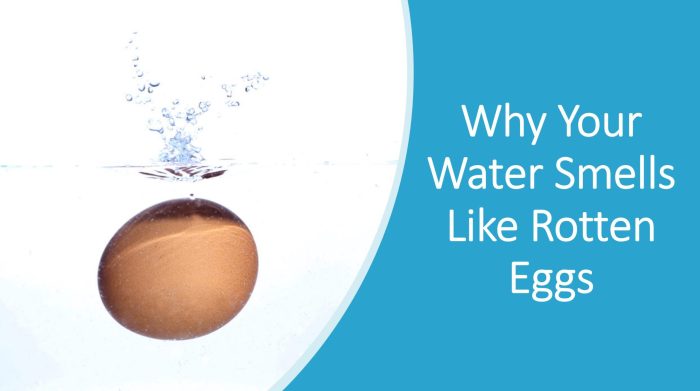Why does my garden hose smell like rotten eggs? It’s a question many gardeners have asked themselves, and the answer is not always simple. The culprit behind this unpleasant odor is often hydrogen sulfide, a colorless gas with a distinct rotten egg smell.
This gas can be produced by various factors, including bacteria growing in the hose, sulfur-containing compounds in your water supply, or even corrosion of metal parts within the hose.
Understanding the source of the smell is crucial for addressing the problem. This article will guide you through the common causes, potential health risks, and effective solutions for eliminating the rotten egg smell from your garden hose.
The Source of the Smell: Why Does My Garden Hose Smell Like Rotten Eggs

That foul rotten egg smell coming from your garden hose is likely caused by hydrogen sulfide (H 2S), a colorless gas with a distinctive, pungent odor. This gas is produced through a chemical reaction involving sulfur and certain bacteria.
Bacteria
Bacteria are a common culprit behind the rotten egg smell in garden hoses. These microorganisms thrive in moist environments and can flourish within the hose, especially if it’s been left unused for a long period. When bacteria decompose organic matter in the water, they release hydrogen sulfide as a byproduct.
Sulfur-Containing Compounds in the Water Supply
The water supply itself can also contribute to the rotten egg smell. Some water sources naturally contain sulfur compounds, including hydrogen sulfide. These compounds can dissolve into the water and eventually accumulate within the hose, leading to the characteristic odor.
Corrosion of Metal Parts
Corrosion of metal parts within the hose can also contribute to the release of hydrogen sulfide. When metal components, such as brass fittings or hose nozzles, corrode, they can release sulfur-containing compounds into the water. This can occur due to the presence of corrosive elements in the water, such as chlorine, or simply due to the natural aging process of the metal.
Inspecting the Garden Hose for Signs of Corrosion or Bacterial Growth, Why does my garden hose smell like rotten eggs
To identify the source of the rotten egg smell, you can visually inspect your garden hose. Here’s a step-by-step guide:
- Examine the hose for any visible signs of corrosion.Look for rust, pitting, or discoloration on the hose’s surface or fittings. If you see any signs of corrosion, it’s likely that metal components are releasing sulfur-containing compounds into the water.
- Check the inside of the hose for any signs of bacterial growth.This can be done by cutting a small section of the hose and inspecting the inside. If you see any slimy, green, or black deposits, it’s likely that bacteria are present. If the hose is white, you may be able to see the slime if you look closely.
- Examine the hose for any cracks or tears.Cracks or tears in the hose can allow bacteria and other contaminants to enter the water supply, leading to the rotten egg smell.
Potential Hazards

While the rotten egg smell in your garden hose might seem like a minor inconvenience, it’s crucial to understand that it indicates the presence of hydrogen sulfide, a gas that poses significant health risks. Hydrogen sulfide is colorless, flammable, and highly toxic, even at low concentrations.
Health Risks Associated with Hydrogen Sulfide Exposure
Hydrogen sulfide exposure can lead to a range of health problems, both short-term and long-term. These issues can affect your respiratory system, eyes, and nervous system, highlighting the importance of taking precautions.
- Respiratory Problems:Hydrogen sulfide can irritate the respiratory system, leading to coughing, wheezing, shortness of breath, and even lung damage. In severe cases, high concentrations can cause respiratory paralysis and death.
- Eye Irritation:Hydrogen sulfide can cause eye irritation, burning, and even temporary blindness. Exposure to high concentrations can lead to permanent damage to the eyes.
- Dizziness and Nausea:Hydrogen sulfide can also affect the nervous system, leading to dizziness, nausea, headaches, and confusion. In severe cases, it can cause loss of consciousness and even death.
Safety Precautions for Handling a Garden Hose with a Rotten Egg Smell
If your garden hose emits a rotten egg smell, it’s essential to take immediate precautions to minimize your exposure to hydrogen sulfide.
That rotten egg smell coming from your garden hose is likely due to sulfur bacteria, which thrive in stagnant water. While you’re dealing with that, why not take a break and learn how to harvest marigold seeds ? These cheerful flowers are known to repel insects, and their seeds can be saved for next year’s garden.
Once you’re back to the hose, try flushing it with a strong solution of bleach to kill off the bacteria.
- Avoid Contact:Do not use the hose until the issue is resolved. If you need to handle the hose, wear protective gear such as gloves, a respirator, and eye protection.
- Ventilate the Area:If you’re working near the hose, ensure the area is well-ventilated. Open windows and doors to allow fresh air to circulate.
- Professional Inspection:It’s crucial to have a professional plumber inspect the hose and water system to identify the source of the hydrogen sulfide and address the problem. They can determine if the issue is in the hose itself or within the water supply system.
- Avoid Using the Water:Do not use water from the hose for drinking, cooking, or bathing until the source of the hydrogen sulfide is identified and addressed.
Troubleshooting and Solutions

A rotten egg smell emanating from your garden hose is a common problem that can be easily addressed with proper troubleshooting and solutions. This section will guide you through identifying the source of the smell, flushing the hose, and exploring various solutions to eliminate the odor.
Troubleshooting Flowchart
A troubleshooting flowchart helps visualize the steps involved in identifying the source of the smell. It can be represented as a series of questions and decisions, leading you to the most likely cause. StartIs the smell present only when using the hose?Yes:Proceed to Is the smell stronger at the beginning of the water flow?No:Proceed to Is the smell present even when the hose is not connected to the water source?Yes:Proceed to Is the smell present in other parts of your plumbing system?No:The smell is likely caused by the hose itself.
Proceed to Flushing the Hose. Yes:The smell is likely caused by a problem with your plumbing system. Proceed to Contact a plumber. Yes:The smell is likely caused by accumulated hydrogen sulfide in the hose. Proceed to Flushing the Hose.
That rotten egg smell coming from your garden hose is likely due to hydrogen sulfide, a gas produced by bacteria that thrive in stagnant water. While you can’t easily get rid of the smell in your hose, you can easily freshen up your bathroom with some lovely scented plants, like the ones listed in this article on plants to make a bathroom smell nice.
Once you’ve dealt with the bathroom, you can focus on tackling the hose issue by flushing it with a hose cleaner or replacing it if it’s too old.
No:The smell is likely caused by a problem with the hose material. Proceed to Replacing the Hose. Yes:The smell is likely caused by a problem with your water source. Proceed to Contact a water quality specialist. No:The smell is likely caused by a problem with your plumbing system.
Proceed to Contact a plumber. End
Flushing the Hose
Flushing the hose is a simple and effective way to remove accumulated hydrogen sulfide. The process involves running water through the hose for a few minutes to dislodge any trapped gas. Instructions:
- Connect the hose to a water source.
- Turn on the water and let it run for 5-10 minutes.
- Disconnect the hose and inspect the water for any remaining odor.
- Repeat steps 1-3 if necessary.
Garden Hose Materials
Different types of garden hose materials have varying susceptibilities to hydrogen sulfide production. Common Garden Hose Materials:* Vinyl:Vinyl hoses are known to be more susceptible to hydrogen sulfide production due to the material’s tendency to absorb sulfur compounds from the water.
Rubber
Rubber hoses are generally more resistant to hydrogen sulfide production than vinyl hoses.
PVC
PVC hoses are often considered the most resistant to hydrogen sulfide production due to their inert nature.
Solutions for Eliminating the Smell
Several solutions can be implemented to eliminate the rotten egg smell from your garden hose. Potential Solutions:
- Using a hose with a built-in filter:Some garden hoses come equipped with filters that can remove sediment and impurities, including hydrogen sulfide, from the water. This can help prevent the smell from developing in the first place.
- Installing a water softener:Water softeners remove calcium and magnesium from the water, which can contribute to hydrogen sulfide production. Installing a water softener can reduce the overall amount of sulfur compounds in your water, thereby reducing the likelihood of a rotten egg smell.
- Replacing the hose entirely:If flushing the hose and other solutions do not eliminate the smell, replacing the hose entirely may be necessary. Consider using a hose made from a material less susceptible to hydrogen sulfide production, such as PVC.
Preventing Future Issues

The rotten egg smell from your garden hose can be a recurring issue if not addressed properly. Taking preventive measures can significantly reduce the chances of encountering this unpleasant odor again.
Regular maintenance of your garden hose is crucial to prevent the buildup of sulfur-containing bacteria and other contaminants that cause the smell. This includes flushing and cleaning the hose regularly, as well as using a water filter to remove impurities from your water supply.
These practices can help maintain the quality of your water and prevent the formation of hydrogen sulfide gas, the culprit behind the rotten egg smell.
Regular Hose Maintenance
Maintaining your garden hose regularly can significantly reduce the risk of encountering the rotten egg smell. This includes flushing and cleaning the hose to remove any accumulated debris and contaminants.
- Flush the hose:After each use, run water through the hose for a few minutes to remove any remaining water and prevent bacteria growth. This is especially important if the hose was used for watering plants or for other purposes that may introduce contaminants into the hose.
- Clean the hose:At least once a year, thoroughly clean the hose with a mild detergent and water. This will remove any accumulated dirt, debris, and bacteria that may be causing the smell. You can also use a hose cleaning solution specifically designed for this purpose.
Using a Water Filter
A water filter can effectively remove impurities and contaminants from your water supply, including sulfur compounds that cause the rotten egg smell. It’s recommended to install a water filter at the point of entry to your home, where the water supply comes in.
This will filter all the water that enters your house, ensuring that your garden hose is supplied with clean and odor-free water.
- Point-of-entry filters:These filters are installed on the main water line entering your house and filter all the water that comes into your home. They are effective at removing a wide range of contaminants, including chlorine, sediment, and sulfur compounds.
- Point-of-use filters:These filters are installed on individual faucets or appliances, such as your garden hose. They are typically less expensive than point-of-entry filters but only filter the water that passes through them.
Epilogue

While a rotten egg smell from your garden hose might seem like a minor inconvenience, it’s important to address the issue promptly. By understanding the causes, potential hazards, and effective solutions, you can ensure a safe and enjoyable gardening experience.
Remember, regular hose maintenance, including flushing and cleaning, can help prevent the build-up of hydrogen sulfide and keep your hose smelling fresh. For a truly worry-free gardening experience, consider investing in a water filter to remove impurities from your water supply.